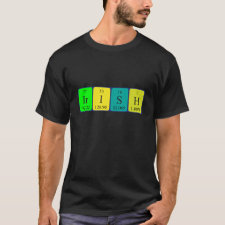
Authors: Muhammad P, Liu J, Xing RR, Wen YR, Wang YJ, Liu Z
Article Title: Fast probing of glucose and fructose in plant tissues via plasmonic affinity sandwich assay with molecularly-imprinted extraction microprobes.
Publication date: 2017
Journal: Analytica Chimica Acta
Volume: 995
Page numbers: 34-42.
DOI: 10.1016/j.aca.2017.09.044
Alternative URL: http://www.sciencedirect.com/science/article/pii/S0003267017311443
Abstract: Determination of specific target compounds in agriculture food and natural plant products is essential for many purposes; however, it is often challenging due to the complexity of the sample matrices. Herein we present a new approach called plasmonic affinity sandwich assay for the facile and rapid probing of glucose and fructose in plant tissues. The approach mainly relies on molecularly imprinted plasmonic extraction microprobes, which were prepared on gold-coated acupuncture needles via boronate affinity controllable oriented surface imprinting with the target monosaccharide as the template molecules. An extraction microprobe was inserted into plant tissues under investigation, which allowed for the specific extraction of glucose or fructose from the tissues. The glucose or fructose molecules extracted on the microprobe were labeled with boronic acid-functionalized Raman-active silver nanoparticles, and thus affinity sandwich complexes were formed on the microprobes. After excess Raman nanotags were washed away, the microprobe was subjected to Raman detection. Upon being irradiated with a laser beam, surface plasmon on the gold-coated microprobes was generated, which further produced plasmon-enhanced Raman scattering of the silver-based nanotags and thereby provided sensitive detection. Apple fruits, which contain abundant glucose and fructose, were used as a model of plant tissues. The approach exhibited high specificity, good sensitivity (limit of detection, 1 μg mL-1), and fast speed (the whole procedure required only 20 min). The spatial distribution profiles of glucose and fructose within an apple were investigated by the developed approach
Template and target information: glucose, fructose, monosaccharide
Author keywords: molecular imprinting, boronate affinity, glucose, fructose, Plasmonic, Plant tissues



Join the Society for Molecular Imprinting

New items RSS feed
Sign-up for e-mail updates:
Choose between receiving an occasional newsletter or more frequent e-mail alerts.
Click here to go to the sign-up page.
Is your name elemental or peptidic? Enter your name and find out by clicking either of the buttons below!
Other products you may like:
 MIPdatabase
MIPdatabase









